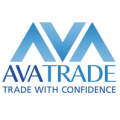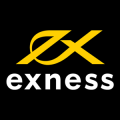Forex trading in Morocco is legal and regulated by the Moroccan Exchange Office (Office des Changes). The forex market in Morocco provides individuals and businesses with opportunities to trade currencies and participate in international foreign exchange markets. Here are some key points to know about forex trading in Morocco:
Regulation: The Moroccan Exchange Office oversees and regulates forex trading activities in Morocco. It sets guidelines and rules to ensure transparency, investor protection, and the prevention of illegal activities such as money laundering.
Authorized Intermediaries: Forex trading in Morocco is conducted through authorized intermediaries, including banks, financial institutions, and brokerage firms. These intermediaries are licensed by the Moroccan Exchange Office and are responsible for facilitating currency exchange transactions and providing access to the forex market.
Currency Pairs: Forex traders in Morocco can trade a wide range of currency pairs, including major pairs (such as EUR/USD, GBP/USD, and USD/JPY), minor pairs, and exotic pairs. The availability of currency pairs depends on the offerings of individual brokers or financial institutions.
Leverage and Margin Trading: Moroccan forex traders may have access to leverage, allowing them to control larger trading positions with a smaller amount of capital. However, it’s important to use leverage responsibly and understand the associated risks, as leverage can amplify both profits and losses.
Trading Platforms and Tools: Forex brokers and financial institutions in Morocco provide trading platforms that offer various tools and features to assist traders. These platforms typically include real-time market quotes, charting tools, technical indicators, and order execution options to facilitate efficient trading.
Educational Resources: Many forex brokers and financial institutions offer educational resources, seminars, and webinars to educate traders about forex trading concepts, strategies, and market analysis. These resources can help traders enhance their knowledge and skills in forex trading.
Risk Management: It’s crucial for forex traders in Morocco to implement effective risk management strategies. This includes setting stop-loss orders, managing leverage levels, diversifying trading positions, and staying updated on market news and events.
Taxation: Forex trading profits in Morocco may be subject to taxation. Traders should consult with a qualified tax advisor or refer to the local tax laws to understand their tax obligations related to forex trading income.
When engaging in forex trading in Morocco, it is important to choose a reputable and regulated broker or financial institution. Conduct thorough research, consider factors such as trading conditions, fees, customer support, and the broker’s reputation before selecting a forex provider. Additionally, traders should invest only funds they can afford to lose and maintain realistic expectations about potential profits and risks involved in forex trading.

